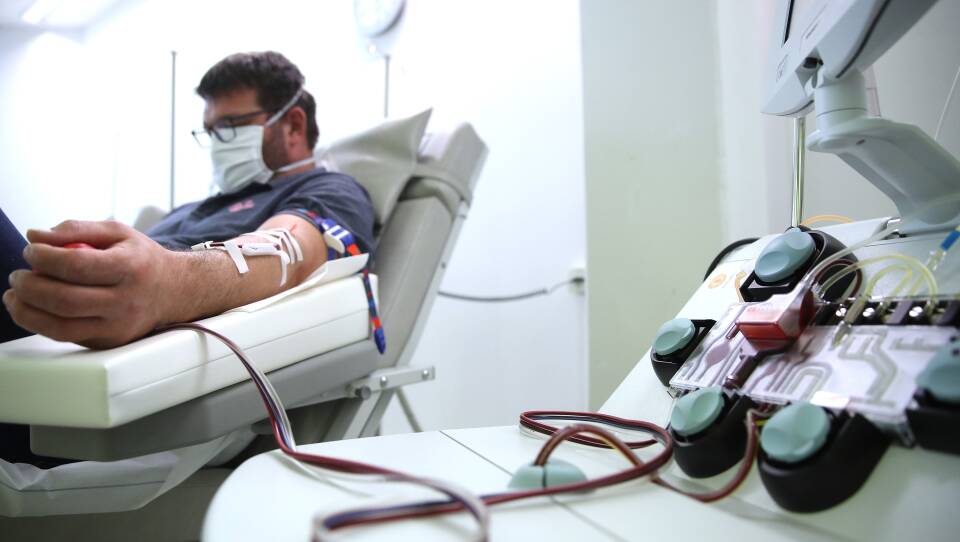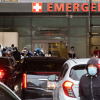The coronavirus pandemic has hit the Red Cross in two ways: the blood supply is at a 10-year low, and staffing shortages due to illness have led to canceled blood drives and rescheduled donation appointments.
Jeff Hall, spokesperson for the Red Cross of Massachusetts , said blood drive cancellations and employee absences have been issues throughout the pandemic, but the omicron variant–fueled surge in cases made those problems even worse. He said 14 blood drives, which average 30 to 50 appointments each, were canceled in the first three weeks of January alone.
"We are susceptible to COVID just like everybody else is right now," Hall said. "When employees are sick, we're asking them to stay home. We try to staff our drives the best we can so we're not canceling appointments, but it is happening."
Carl Stamm of Roslindale said he’s been donating blood regularly for more than 30 years. At the start of the pandemic, he said, three of his appointments were canceled. More recently, his wife's appointment for mid-January was rescheduled for late February.
“It's probably pretty widespread, and I realize that most of it is happening beyond their control,” Stamm said. But he added that the Red Cross needs to address the staff shortages or they risk losing donors.
Hall said that there are nearly 100 staff members working in mobile drive operations throughout Massachusetts, and staffing is a priority to keep operations running.
“We're staying on top of it, talking to workers who are out — whether they've had positive COVID tests or negative COVID tests — to try to figure out when people can come back to work if they aren't feeling well,” he said.
He added that regional managers have been monitoring the staffing levels across the state and moving employees from one location to another to fill in gaps.
The American Red Cross declared a national blood crisis at the beginning of January, and it has not abated. Hall said Massachusetts needs at least 300 units of blood each day to meet the baseline criteria for the patients who need to be served. He said they would like to see a five-day supply in their blood bank. Right now it's down to a one-day supply.
Nationwide, it's even less — another strain on the nation’s healthcare system given that 40% of the U.S. blood supply comes from the Red Cross.
Hall said people with all blood types are needed, especially people with type O-negative blood, who are considered universal donors. To encourage more people to donate, the Red Cross has been offering incentives, including gift cards and tickets to major events, like the Super Bowl.
Hall hopes people respond to the current blood crisis, and knows no one is happy if their appointment is canceled. He urged donors not to give up.
"We ask that people keep their rescheduled appointment and be as patient with us as possible because we really need your help," he said.








